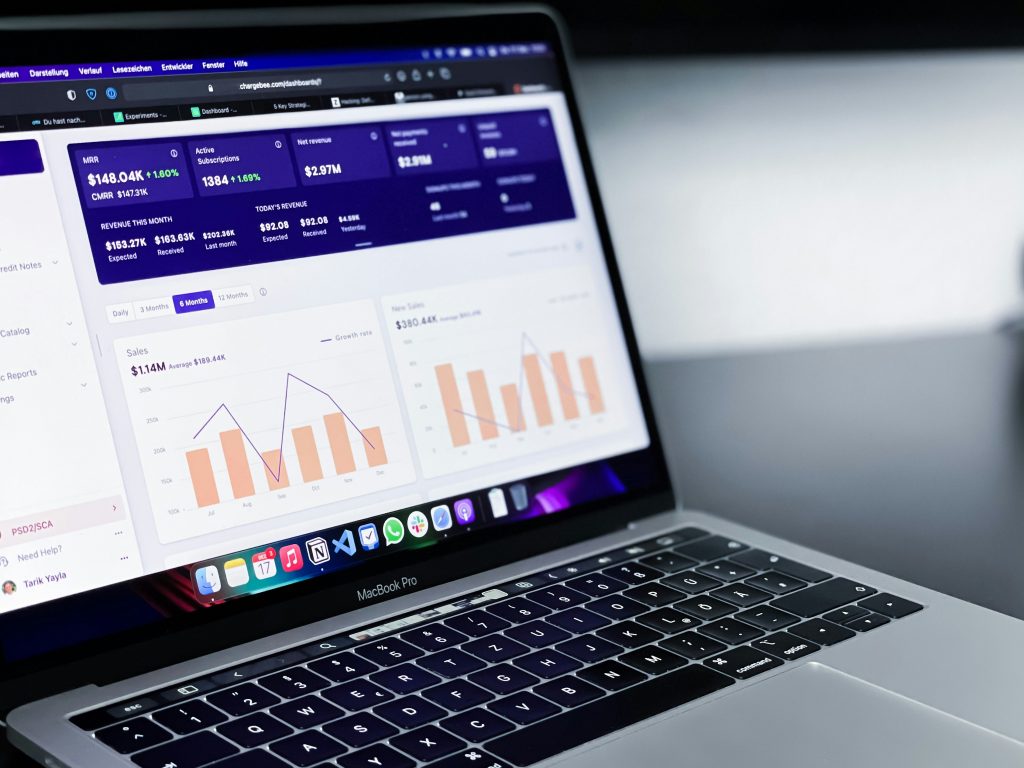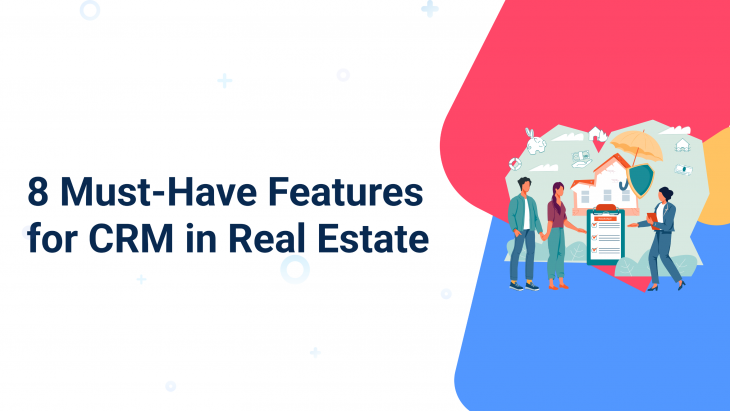When it comes to making it in the real estate industry today, building and maintaining relationships is the name of the game. That’s exactly where customer relationship management (CRM) tools step in.
Think of them as your reliable assistant, always there to lend a hand in keeping everything running smoothly, enhancing communication, and fueling business growth. But not every CRM is tailored to the specific needs of real estate professionals.
So, let’s take a closer look at eight essential features that every real estate CRM should offer, and how they can simplify life for both agents and agencies!
How CRM is Used in Real Estate
You may understand the basic premise of CRM and why it is beneficial in real estate, but how exactly can it be used?
As a real estate agent, you’re likely juggling multiple clients and properties every day. Without a reliable system in place, it’s easy for things to fall through the cracks.

Enter CRM tools! They act as your personal assistant by keeping all client interactions neatly organized. Whether you’re tracking inquiries, setting reminders, or analyzing market trends, your CRM has your back.
For example, let’s say you’re helping a client find a pet-friendly apartment in a specific neighborhood. With your CRM, you can effortlessly sift through properties and schedule viewings, ensuring a tailored experience.
In this case, your CRM turns into a powerful partner, helping you provide exceptional service and simplifying your life significantly.
8 Key CRM Features for Real Estate
1. Contact Management
A robust contact management system allows agents to store detailed information about clients, including contact details, preferences, communication history, and important dates.
How to Use It: Agents can segment contacts based on criteria such as location, budget, or property preferences, enabling targeted marketing and communication efforts.
Benefits: By maintaining a comprehensive database of contacts, agents can deliver tailored services and nurture relationships more effectively, leading to increased client satisfaction and loyalty.

2. Property Listings Management
An integrated property listings management feature enables agents to easily upload, organize, and showcase available properties within the CRM platform.
How to Use It: Agents can quickly search and filter listings based on criteria such as location, price range, and property type, facilitating efficient matching with client preferences.
Benefits: By centralizing property listings within the CRM, agents can streamline the sales process, reduce administrative overhead, and provide clients with timely access to relevant listings.

3. Task and Appointment Reminders
Task and appointment reminder functionalities help agents stay organized and on top of their daily activities, ensuring no important deadlines or meetings are missed.
How to Use It: Agents can schedule tasks, set reminders, and sync appointments with their calendar, ensuring timely follow-ups and efficient time management.
Benefits: By staying organized and proactive, agents can deliver a higher level of service, maintain client engagement, and increase productivity.

4. Lead Management and Automation
Lead management tools allow agents to capture, track, and nurture leads throughout the sales funnel, from initial inquiry to conversion.
How to Use It: Agents can automate lead capture through website forms, social media integrations, and email campaigns, enabling efficient lead qualification and follow-up.
Benefits: By automating repetitive tasks and implementing lead scoring mechanisms, agents can prioritize high-value leads, optimize conversion rates, and focus their efforts on the most promising opportunities.

5. Customizable Reporting and Analytics
Customizable reporting and analytics features provide agents with valuable insights into their business performance, client interactions, and market trends.
How to Use It: Agents can generate reports on key metrics such as lead conversion rates, sales pipeline velocity, and client satisfaction scores, allowing for data-driven decision-making and continuous improvement.
Benefits: By leveraging data analytics, agents can identify trends, pinpoint areas for improvement, and adapt their strategies to meet evolving market demands, ultimately driving business growth and profitability.

6. Mobile Accessibility
Mobile accessibility ensures that agents can access their CRM anytime, anywhere, from any device, enabling flexibility and responsiveness in today’s dynamic real estate landscape.
How to Use It: Agents can use mobile apps or responsive web interfaces to view client information, update records, and communicate on the go, ensuring seamless collaboration and client support.
Benefits: By embracing mobile technology, agents can stay connected and productive, even while out in the field, enhancing client satisfaction and maintaining a competitive edge.

7. Integration with Third-party Tools
Integration with third-party tools such as email marketing platforms, social media channels, and property listing websites enhances the functionality and efficiency of the CRM.
How to Use It: Agents can sync data between the CRM and external systems, automate workflows, and leverage additional features and capabilities to enhance their productivity and effectiveness.
Benefits: By integrating with existing tools and platforms, agents can streamline their workflows, eliminate duplicate data entry, and leverage the full power of their technology stack to drive results.

8. Customer Support and Training
Robust customer support and training resources ensure that agents can maximize the value of their CRM investment and overcome any challenges or obstacles they may encounter.
How to Use It: Agents can access comprehensive documentation, video tutorials, and live support channels to troubleshoot issues, learn new features, and receive personalized assistance as needed.
Benefits: By providing ongoing support and training, CRM vendors empower agents to leverage the full potential of their software, enhance their skills, and achieve their business goals with confidence.
Meet Nimble — The Perfect CRM for Real Estate Agencies Who Value Nurturing Relationships, Not Just Tracking Dollars and Deals
Nimble is more than just a CRM — it’s a relationship-building platform designed specifically for real estate professionals who understand the importance of nurturing connections and delivering exceptional client experiences.
With its intuitive interface, robust features, and seamless integration capabilities, Nimble empowers agents and agencies to cultivate lasting relationships, drive business growth, and succeed in today’s competitive market.
Summary
In the fast-paced world of real estate, having the right CRM can make all the difference.
By prioritizing features such as contact management, property listings management, task and appointment reminders, lead management and automation, customizable reporting and analytics, mobile accessibility, integration with third-party tools, and customer support and training, agents and agencies can enhance their efficiency, productivity, and ultimately, their bottom line.
With the right CRM solution in place, real estate professionals can focus on what they do best — building relationships, closing deals, and exceeding client expectations.


